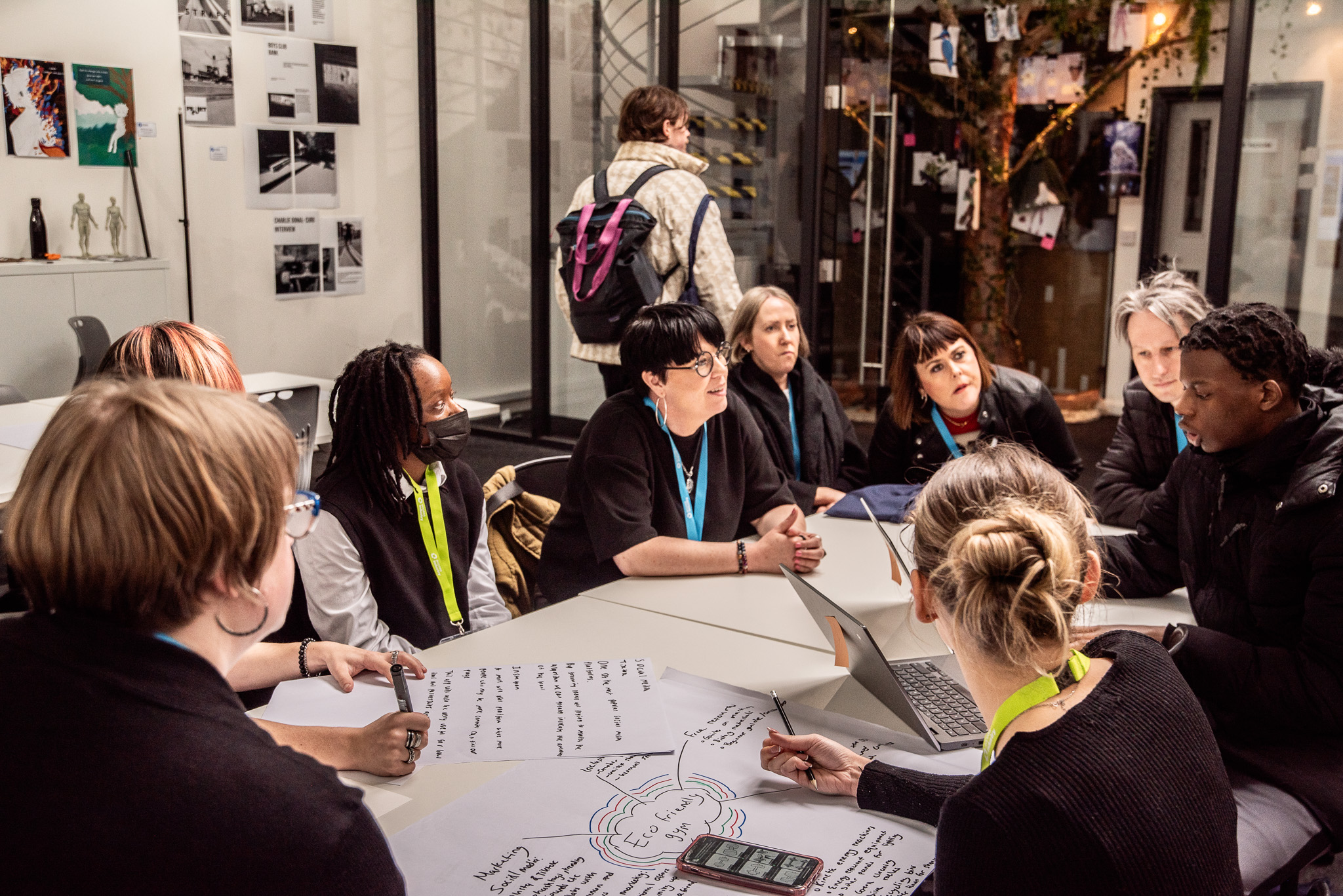In this blog post, we’ll explore the importance of diversity in apprenticeship recruitment, the state of diversity in these programmes, and look at inclusive recruitment processes.
According to a McKinsey report, companies with greater diversity are 35% more likely to have financial returns above their national industry averages.
“Diversity” isn’t just a buzzword, it’s essential for a thriving business. It’s proven that companies that champion diversity are more innovative, adaptable, and better positioned to tap into a broader market.
Yet, despite its clear benefits, diversity in apprenticeship programmes still needs to catch up. For HR professionals and business owners, improving diversity in recruitment is both a challenge and an opportunity.
![]()
The current state of diversity in apprenticeships

According to the latest data, diversity in UK apprenticeships shows some representation discrepancies. White people constitute 84.6% of apprentices while representing 81.0% of the overall population in England, which indicates some underrepresentation of other racial groups.
Although there has been growth, when it comes to ethnic minorities taking up apprenticeships, there is still some room for further progress.
Identifying common challenges
One significant barrier is the lack of awareness regarding apprenticeship opportunities among diverse populations. Schools and communities which serve minority groups may not have the resources or knowledge to guide students towards these pathways.
Another hurdle is the recruitment process itself. Traditional hiring practices may inadvertently favour certain demographics. For instance, job descriptions that use jargon or industry-specific language can alienate those unfamiliar with the field. Furthermore, unconscious biases in the selection process can result in a less diverse candidate pool.
Socioeconomic barriers
Socioeconomic factors also play a role as many apprenticeships offer lower wages initially, which can be a deterrent for individuals from economically disadvantaged backgrounds. Without sufficient financial support, the prospect of an apprenticeship can seem unfeasible.
To address these challenges, it’s crucial to adopt inclusive recruitment practices that actively seek to dismantle these barriers.
![]()
Best inclusive recruitment practices

Crafting inclusive job descriptions
One of the first steps in improving diversity in apprenticeship recruitment is to ensure your job descriptions are inclusive and friendly. This means using language that is concise, clear and jargon-free. Avoid terms that may inadvertently exclude certain groups and focus on the skills and attributes necessary for the role.
For example, instead of stating “must have extensive experience in X,” you could say “eager to learn and grow in X.” Highlighting a willingness to train and develop candidates can attract a broader range of applicants.
Creating a welcoming recruitment process
The recruitment process itself should be welcoming and accessible to all, starting with where you advertise your apprenticeship opportunities. Partner with organisations which support underrepresented groups, such as community centres, schools, and nonprofits.
When conducting interviews, ensure your panel is as diverse as possible. This not only sets a positive example but also helps to mitigate unconscious biases. Standardise your interview questions to ensure each candidate is evaluated on the same criteria, making the process fairer and more transparent.
Offering financial support
To address the socioeconomic barriers, consider offering financial support to apprentices. This could be in the form of travel allowances, or providing equipment and materials needed for the apprenticeship. Such support can make a significant difference for candidates from economically disadvantaged backgrounds.
Providing mentorship and support
Mentorship is a powerful tool for diversity. Pairing apprentices with mentors who can offer guidance, support, and encouragement can help them feel valued and included. This is particularly important for individuals from underrepresented groups who may face additional challenges in the workplace.
Inclusive recruitment practices
It’s essential to continuously evaluate and improve your recruitment practices. This involves gathering feedback from current and past apprentices to understand their experiences and identify areas for improvement. Regularly reviewing your recruitment data can also highlight any disparities and help you make informed decisions.
Encourage the use of Employee Resource Groups
Employee Resource Groups (ERGs) can provide a supportive community for apprentices from diverse backgrounds. These groups offer a platform for networking, mentorship, and professional development. Encouraging the formation of ERGs within your company can help create an inclusive environment where everyone feels like they belong.
Promoting a culture of inclusion
Creating a truly diverse apprenticeship programme goes beyond recruitment, it’s about generating a culture of inclusion within your organisation. This means promoting diversity at all levels, from entry-level positions to leadership roles. It also involves providing ongoing training and education on diversity and inclusion for all employees.
Leveraging technology for diversity
Technology can play a significant role in improving diversity in apprenticeship recruitment. AI-powered recruitment tools can help eliminate biases in the selection process by focusing on skills and qualifications rather than subjective criteria.
![]()
Diversify your apprenticeship recruitment

By adopting inclusive recruitment practices, providing mentorship and support, and creating a culture of inclusion, you can create an apprenticeship programme that attracts and retains a diverse pool of candidates.
If you’re ready to take the next step in making your apprenticeship programme more inclusive, consider these strategies and start implementing them today. Your efforts will not only benefit your organisation but also contribute to a more equitable and inclusive society.
For more insights and resources on apprenticeship programmes visit our blog, or if you’re looking for an apprenticeship provider, we here at Access Industry can help!
- 10 Things you should know before becoming a Content Creator - January 14, 2025
- What Is Machine Learning? (And Why Should I Learn About It?) - January 14, 2025
- Content Creation Apprenticeship vs T Level: Which is best? - December 2, 2024